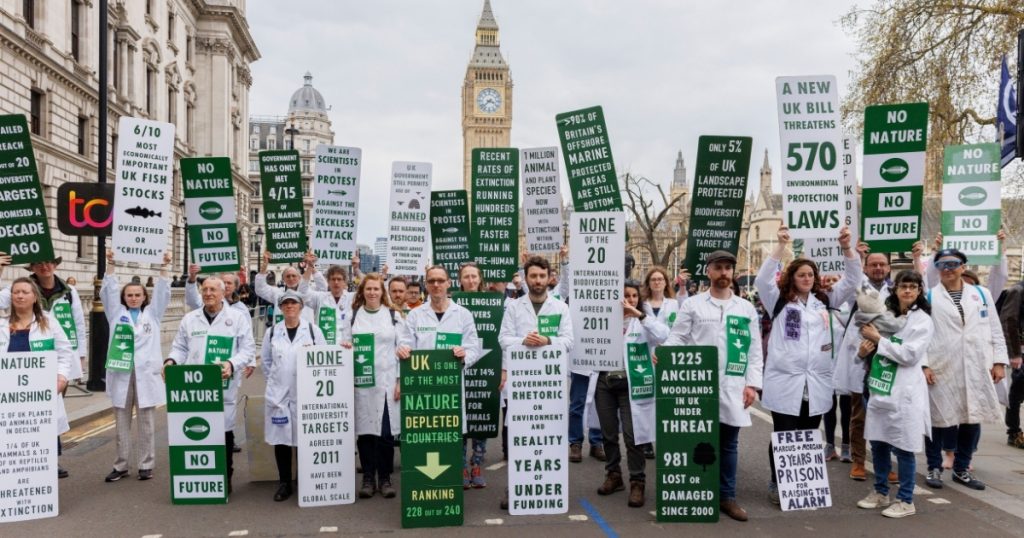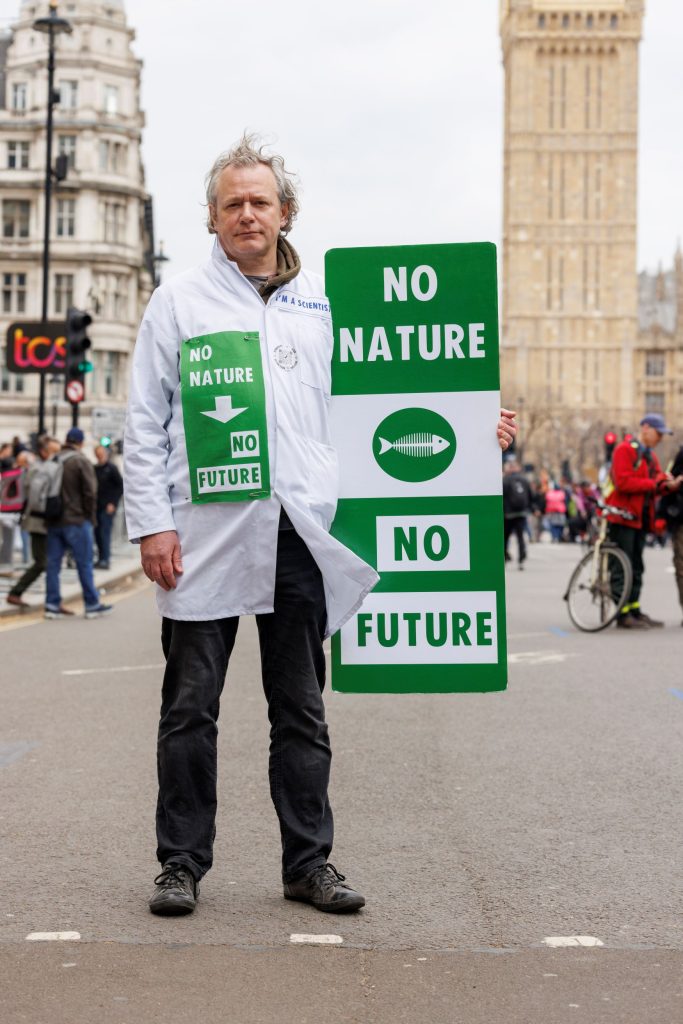
© Photography by Crispin Hughes
Words by Dr Stuart Capstick
CAST Deputy Director and Theme 3 lead Dr Stuart Capstick discusses his experience at ‘The Big One’ climate and nature protests as part of Scientists for XR which took place in central London from 21-24 April 2023 where people from all groups and movements gathered to call for change.
You may not have heard that much about Extinction Rebellion recently. The original momentum that brought thousands of people onto the streets and changed the national conversation back in the late 2010s was curtailed by the pandemic and new approaches designed to suppress dissent, as well as the confusion and fatigue that followed XR’s earlier successes. The sharp end of climate activism has instead been claimed by Just Stop Oil and their focus on opposing new oil and gas through a series of spectacular stunts.
However, quietly, in the background, activists have continued to share ideas and look to what comes next. At the end of April, this took shape in the form of The Big One, an event centred on Westminster that put to one side the earlier disruptive tactics of XR with the intention of embracing and building a wider movement. On this occasion, more mainstream organisations including Greenpeace, Friends of the Earth, CAFOD, the Fairtrade Foundation and over 200 others came together in solidarity to speak out on the need for urgent action on the climate and ecological crisis.
One such group was Scientists for XR, who was out in full force to support and engage with people and take part in a series of talks and events. Our members include everyone from PhD students to retired professors, brought together by a deep concern about the state of the planet – as well as a shared recognition that our profession places an obligation on us to do much more than research and write papers. We were supported in our aims by the long-standing organisations’ Scientists for Global Responsibility and Scientists Warning.
While the news cycle and its whims and interests come and go, the climate and ecological crisis remains as pressing as ever.
Dr Stuart Capstick
Over the four days, our stall outside the Houses of Parliament was constantly busy with people wanting to talk about the science, problems and solutions. I’ve personally never done outreach like it: many of those who talked to us were fellow protestors, as well as curious members of the public of all ages, backgrounds and points of view.

One of the most heartening outcomes of our time spent in London was that 112 new scientists signed up in person to be connected to Scientists for XR – a massive boost to our numbers and a clear sign that there are many others out there who share our concerns. We also gave talks and speeches outside government departments and appeared on various television and news programmes – one of us even braving the Lawrence Fox show on GB News to discuss environmentalism.
Our neighbours outside parliament were the health professionals based at the Planetary Health Hub. One event that I was part of linked together speakers from the scientists and health professionals to offer some perspectives on climate communication, as part of which we invited the audience to compare and share their experiences of how best to do this – as well as how to handle the pitfalls.
The culmination of the protests was a march of around 60,000 people through London (that’s some of us with the placards in this BBC piece). This ended with protestors being invited to take part in a mass ‘die-in’ – where people lay down wherever they were, completely silent apart from the sound of birdsong broadcast from people’s speakers and phones.
© Photography by Crispin Hughes
Having the illusion of nature echoing on all sides, created only by electronic devices, was both moving and profoundly sad. At this stage of the march, we scientists stood among some of the protestors holding signs drawing attention to the state of nature in the UK and the failures of successive governments to halt its decline.
While the news cycle and its whims and interests come and go, the climate and ecological crisis remains as pressing as ever. As someone who has produced work on climate for 15 years, it’s extremely valuable to be in touch with others who understand the science but who are also willing to move beyond the usual comfort zones scientists inhabit. I hope our numbers continue to grow and perhaps we’ll see you on the streets next time.
Find out more about Dr Stuart Capstick’s research at CAST and follow him on Twitter for the latest updates.
Follow us on Bluesky and LinkedIn and subscribe to our newsletter for future updates from the CAST team.
